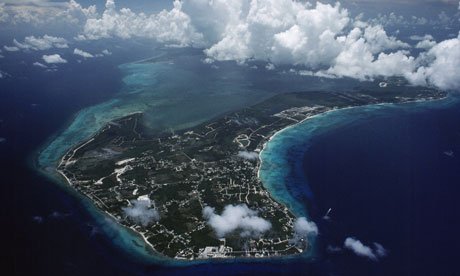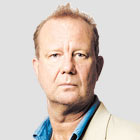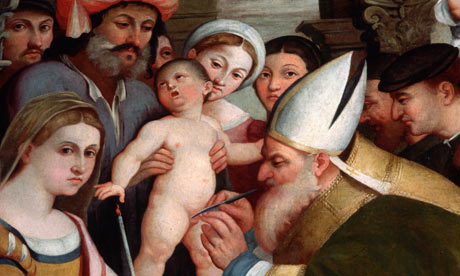Real free markets require genuine competition if they are to offer the constantly improving quality of service that is the redeeming virtue of private enterprise
What a feast the past week has been for the last adherents of the old socialist religion. There was yet another banking scandal and this one actually involved (wow!) laundering of drug money, and possible terrorist connections. And then there was a whopperoo of a public relations catastrophe, when a private firm’s commitment to providing security for the Olympics fell apart. So here we go again. From the planet where state power and government provision is an eternal fount of benevolence, come the voices of reproach. They always knew it would end like this: the forces of rabid capitalism have been allowed to pillage and destroy the moral fabric of the nation with their rapacious lust for profit, laying waste to the great public service ethos which once ruled our communal life.
Thank heaven for Mark Serwotka. Just as this outpouring of egregious moral hokum was reaching its ululating zenith, along came the Public and Commercial Services Union to remind us what the “public service ethos” is all about. Mr Serwotka’s comrades, who hold the security of the entire country in their grip, were to pull the plug at Britain’s ports of entry on the day before the Olympic Games opened. Ah, yes. There is the spirit of the untrammelled, invincible public sector at its purest: self-serving, politically ruthless, and indifferent to any needs or concerns outside its own vested interest. This was the mindset that once prevailed in the government-owned public services, with their hugely powerful national unions, which dominated our day-to-day existence within living memory.
Those of us old enough to recall what it was actually like to be persecuted by the North Thames Gas Board, to be put on a six-month waiting list for a telephone by the General Post Office, and to be at the mercy of dustmen who went on strike whenever their feelings were hurt, are not likely to be taken in by meretricious rhetoric about the glories of state ownership. It was the blinding rage against all of that – and the determination that it should never return – that kept the Conservatives in power for 18 years.
But I worry about the youngsters. Could a whole new generation of useful idiots be recruited to the cause of collectivism and state ownership, bamboozled by deliberately muddled assertions which do not stand up to examination? Will they be inclined, for example, to accept the hysterical claims that HSBC’s alleged money-laundering activity is a revelation about the nature of capitalism itself: that it encapsulates the essential immorality of the free market? Perhaps it would be pertinent for someone (David Cameron?) to point out that laundering drug money is not capitalism. It is not even “rampant capitalism”: it is a crime.
Freedom – as in “free market” – is not the same as lawlessness. If bankers are criminals, they should go to prison. It is the careless enforcement of the law – or a lack of the transparency which makes such enforcement possible – which should be in the dock here, not free-market economics. To consign capitalism to the devil because criminal activity went on within it is absurd. We may as well ban the ownership of goods because it creates the possibility of theft. Criminality is a danger under any system, because it is a function of human frailty. The point is to pursue and eradicate a particular crime, not to smash the freedoms under which it was conceivable. What is needed now is diligence and discipline in the running of markets – which brings us to that other great embarrassment for the private sector.
The word that has been uttered more than any other throughout the week (with much self-important pomposity in some cases) has been “shambles”. Yes, the failure of G4S to provide the security staff which they were contracted to recruit was indeed a four-star mega-shambles. But so was the Government’s failure to monitor the slipshod way that its contractor was managing such a vital programme. And for that matter, so was George Osborne’s last Budget, and the Coalition’s catastrophic attempt to hammer Lords reform through Parliament, and the BBC’s coverage of the Diamond Jubilee. Yes sir, “shambles” is the word of the moment – and it applies as much to amateurish, incompetent, self-indulgent government or national institutions as it does to hapless private companies that make very public messes.
This is the real British disease: unseriousness, lack of rigour, ill-discipline, failure to attend to detail and inadequate follow-through. Certainly it is true that what is now called “outsourcing” of public services – the disgraced Public Finance Initiative or public-private partnership – has taken a lot of hits. It has sometimes (but not always, as the neo-nationalisers would have you believe) ended up costing more and delivering less than it should. But that is almost wholly the fault of government agencies (both central and local) that are hopeless at commissioning and monitoring contractors. Getting value for money and insisting on efficiency are so alien to the mentality of public bureaucrats that they are far more inclined simply to hand over responsibility to outside firms and wait for them to perform miracles. Labour did this with the clear intention of fudging Whitehall spending limits so that it could pour even more money into its benefit entitlement programmes. The Tories do it in better faith but with less excuse for sloppy management: they are the people whose backgrounds ought to have taught them that private contractors need to be chased, harried and held to the mark.
But then the Tory record on privatisation has not been covered in glory. It will not do, for example, to dismantle a state monopoly in telecommunications only to hand it to a private monopoly. BT may not make you wait six months for a telephone, but they will rip you off with the joyous alacrity of a company that knows it has no effective competitors. Nor should the old gas and electricity boards have been stripped of their power only for energy supply to be run by a cartel of price-fixing giants. Real free markets require genuine competition if they are to offer the constantly improving quality of service that is the redeeming virtue of private enterprise. Otherwise private provision will seem like a profit-obsessed conspiracy against the public – hardly an improvement on the old nationalised industries, which had become comical in their failure to serve the consumer by the time the country threw them out. There is no time left for inept, half-hearted, inadequate administration. The argument against state power could be lost – and then another generation will have to learn the lesson all over again.







